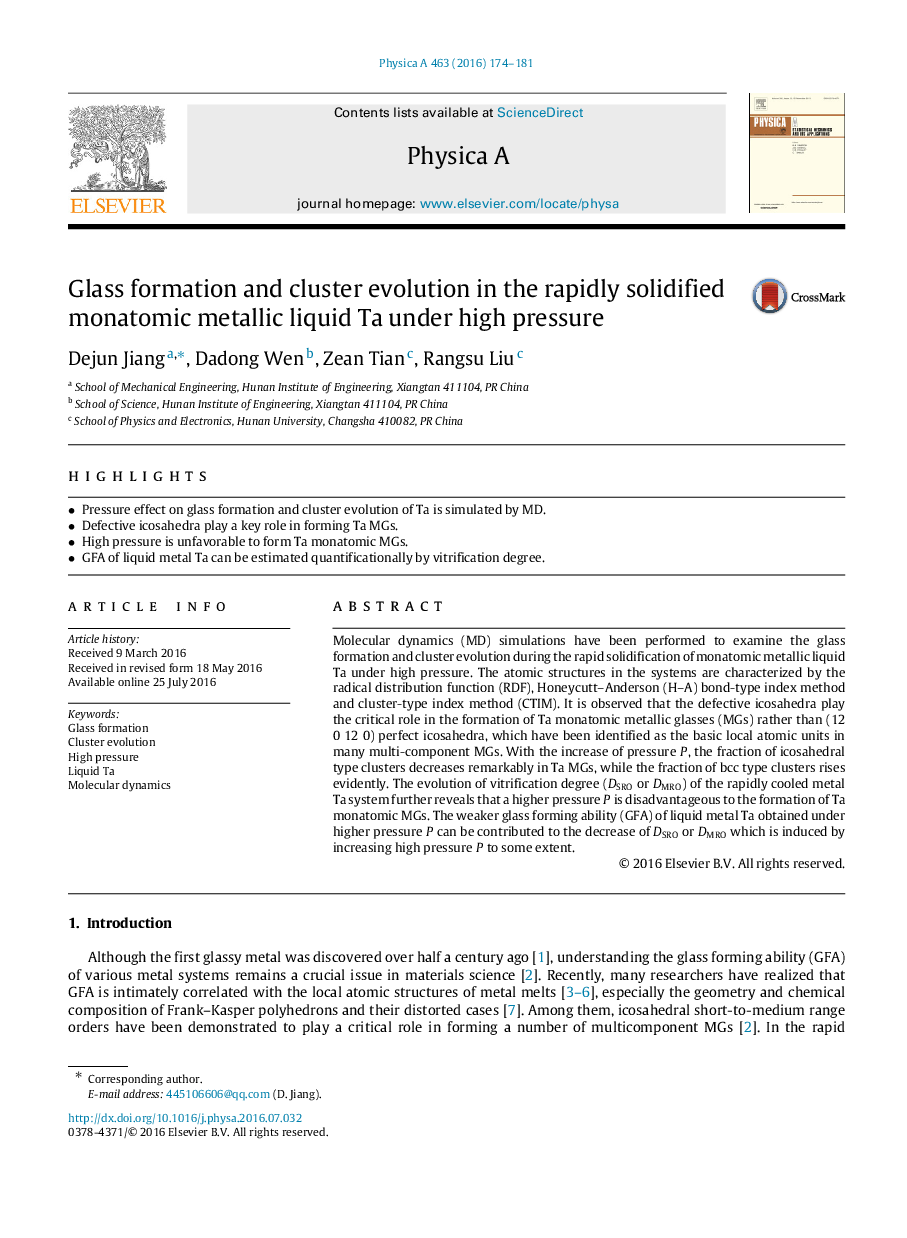| کد مقاله | کد نشریه | سال انتشار | مقاله انگلیسی | نسخه تمام متن |
|---|---|---|---|---|
| 973937 | 1480110 | 2016 | 8 صفحه PDF | دانلود رایگان |
• Pressure effect on glass formation and cluster evolution of Ta is simulated by MD.
• Defective icosahedra play a key role in forming Ta MGs.
• High pressure is unfavorable to form Ta monatomic MGs.
• GFA of liquid metal Ta can be estimated quantificationally by vitrification degree.
Molecular dynamics (MD) simulations have been performed to examine the glass formation and cluster evolution during the rapid solidification of monatomic metallic liquid Ta under high pressure. The atomic structures in the systems are characterized by the radical distribution function (RDF), Honeycutt–Anderson (H–A) bond-type index method and cluster-type index method (CTIM). It is observed that the defective icosahedra play the critical role in the formation of Ta monatomic metallic glasses (MGs) rather than (12 0 12 0) perfect icosahedra, which have been identified as the basic local atomic units in many multi-component MGs. With the increase of pressure PP, the fraction of icosahedral type clusters decreases remarkably in Ta MGs, while the fraction of bcc type clusters rises evidently. The evolution of vitrification degree (DSRO or DMRO) of the rapidly cooled metal Ta system further reveals that a higher pressure PP is disadvantageous to the formation of Ta monatomic MGs. The weaker glass forming ability (GFA) of liquid metal Ta obtained under higher pressure PP can be contributed to the decrease of DSRO or DMRO which is induced by increasing high pressure PP to some extent.
Journal: Physica A: Statistical Mechanics and its Applications - Volume 463, 1 December 2016, Pages 174–181
